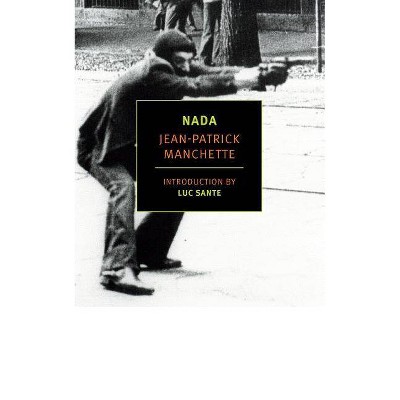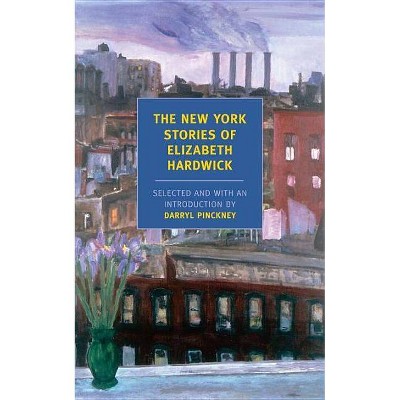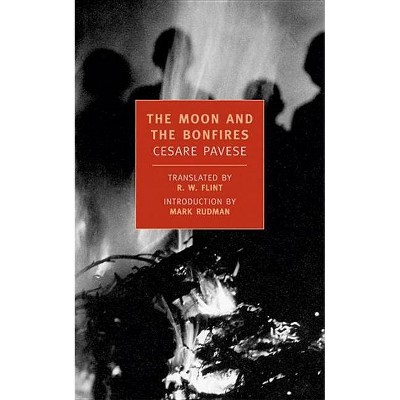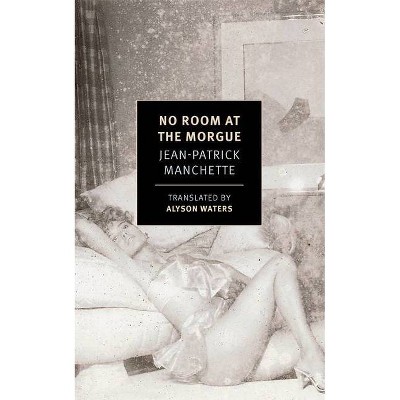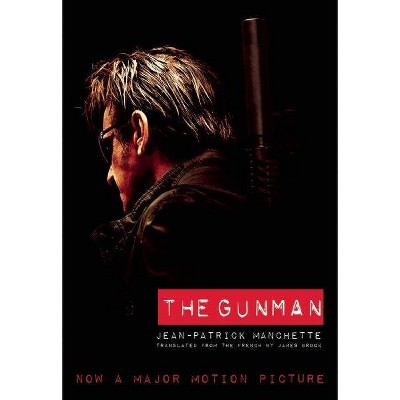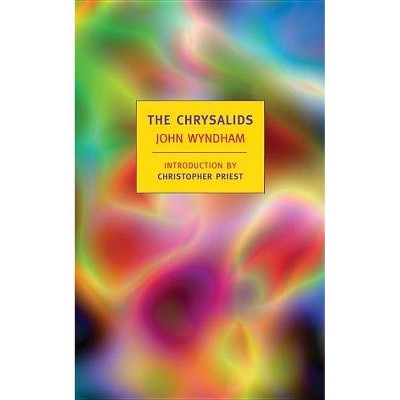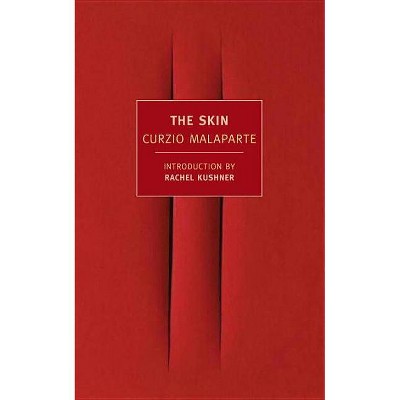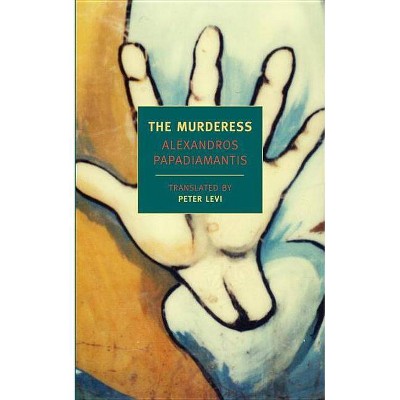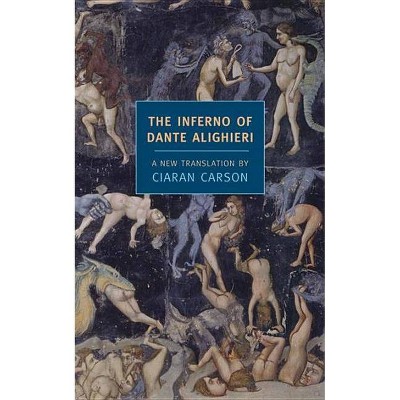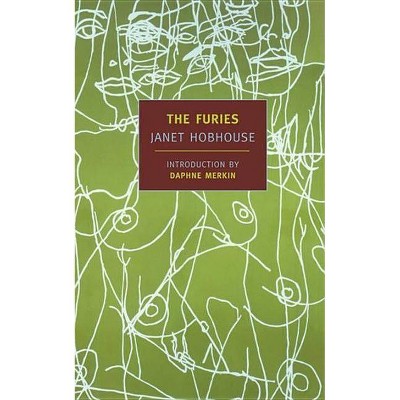The Mad and the Bad - (New York Review Books Classics) by Jean-Patrick Manchette (Paperback)
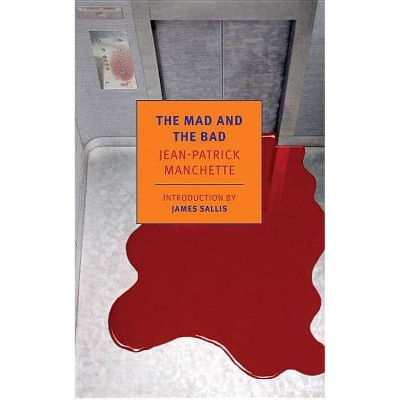
Similar Products
Products of same category from the store
AllProduct info
<p/><br></br><p><b> About the Book </b></p></br></br>"Michel Hartog, a sometime architect, is a powerful businessman and famous philanthropist whose immense fortune has just grown that much greater following the death of his brother in an accident. Peter is his orphaned nephew--a spoiled brat. Julie is in an insane asylum. Thompson is a hired gunman with an ulcerated gut. Michel, known for his kindly interest in the disadvantaged, hires Julie to look after Peter. And he hires Thompson to kill them. Julie and Peter escape. Thompson, gut groaning, pursues. Hunter and hunted make their way across France to the remote mountain estate to which Michel has retreated. Bullets fly. Bodies accumulate. The craziness is just getting started. Like Jean-Patrick Manchette's celebrated Fatale, The Mad and the Bad is a clear-eyed, cold-blooded, pitch-perfect work of creative destruction"--<p/><br></br><p><b> Book Synopsis </b></p></br></br>An NYRB Classics Original <p/>Winner of the French-American Foundation Translation Prize for Fiction <p/>Michel Hartog, a sometime architect, is a powerful businessman and famous philanthropist whose immense fortune has just grown that much greater following the death of his brother in an accident. Peter is his orphaned nephew--a spoiled brat. Julie is in an insane asylum. Thompson is a hired gunman with a serious ulcer. Michel hires Julie to look after Peter. And he hires Thompson to kill them. Julie and Peter escape. Thompson pursues. Bullets fly. Bodies accumulate. <p/>The craziness is just getting started. <p/>Like Jean-Patrick Manchette's celebrated <i>Fatale</i>, <i>The Mad and the Bad</i> is a clear-eyed, cold-blooded, pitch-perfect work of creative destruction.<p/><br></br><p><b> Review Quotes </b></p></br></br><br>[Manchette's] writing is lean and relentless, a brutal evocation of a world in which conventional morality is just another lie we tell ourselves...<i>The Mad and the Bad</i> is so dark it redefines noir: bleak and pointed, yes, but also infused with an understanding that what passes between us is not only compromised but more often faithless, less a matter of commitment or connection than a kind of unrelenting animal need. --David L. Ulin, <i>Los Angeles Times </i> <br>A beautiful woman is freed from an insane asylum by a rich philanthropist who wants her to care for his nephew. But when the nanny and her charge are kidnapped, it's not the ransom plot it appears--in fact, as they escape and flee the gunmen hired to kill them, the truth of the situation is clearly a metaphor for the left-leaning author's deep cynicism about French society. Scenes play out like an art film--Manchette was also a screenwriter--right up until the prolonged, blood-splattered finale. --<i>Booklist</i> <p/>"Jean-Patrick Manchette: raconteur, bon vivant, leftist militant, agent provocateur, swinger, French crime kingpin, gadfly foe of the Fifth Republic. Man-oh-man Manchette was a decades-long hurricane through the Parisian cultural scene. We must revere him now and rediscover him this very instant. Jean-Patrick Manchette was <i>Le Homme</i>." --James Ellroy <p/>"This early masterpiece by Jean-Patrick Manchette shows him in most glorious, coldest fury, wrapping a scathing critique of the excesses of greed and capitalism in the bloody bow of a chase thriller. You'll want to turn the pages of <i>The Mad and the Bad</i> at the fastest possible clip, but slow down a little and you'll see how much Manchette packs in--and how much of a punch this mean little book packs." --Sarah Weinman, Editor of <i>Troubled Daughters, Twisted Wives</i> <p/> "'The crime novel, ' [Manchette] claimed, 'is the great moral literature of our time'--shortly before he set about proving it." --James Sallis, <i>The Boston Globe</i> <p/> "In France, which long ago embraced American crime fiction, thrillers are referred to as <i>polars</i>. And in France the godfather and wizard of <i>polars</i> is Jean-Patrick Manchette.... He's a massive figure.... There is gristle here, there is bone." --<i>The Boston Globe</i> <p/> "Manchette is legend among all of the crime writers I know, and with good reason: his novels never fail to stun and thrill from page one." --Duane Swierczynski, author of <i>Expiration Date</i> <p/> "Manchette pushes the Situationist strategy of <i>dérive</i> and <i>détournement</i> to the point of comic absurdity, throwing a wrench into the workings of his main characters' lives and gleefully recording the anarchy that results." --Jennifer Howard, <i>Boston Review<br></i><br>Manchette...was instrumental in the development of a new generation of French crime fiction--the <i>néo-polar</i>--with his unpredictable, fast-paced, politically informed novels...[<i>The Mad and the Bad]</i> is violent, swiftly paced, and grotesquely funny. --<i>The New Yorker</i> <p/>A writer of urgency and cunning, of economy and laconic cool. <i>--</i>Chris Morgan, <i>Los Angeles Review of Books</i> <p/>"Manchette is an impressively economical writer, lean and mean, with a single-mindedness of focus which permits just enough detail to make the stories palpable but precludes distractions."<br> --<i>Medium</i> <p/>Building upon the hard-boiled genre and creating an offshoot of his own called the <i>néo-polar</i>, Manchette was a sincere but complicated trickster, a writer who claimed that detective fiction was 'the great moral literature of our time, ' who wanted to use the genre to expose the pitfalls of capitalism and the victims of the exploited classes...and who produced thin novels that are very entertaining and stylistically singular." --Tynan Kogane, <i>Music and Literature<br></i><br>[Manchette's] writing is lean and relentless, a brutal evocation of a world in which conventional morality is just another lie we tell ourselves...The Mad and the Bad is so dark it redefines noir: bleak and pointed, yes, but also infused with an understanding that what passes between us is not only compromised but more often faithless, less a matter of commitment or connection than a kind of unrelenting animal need.<br>--David L. Ulin, <i>Los Angeles Times</i><br><i> </i><br><p/><br></br><p><b> About the Author </b></p></br></br><b>Jean-Patrick Manchette</b> (1942-1995) was a genre-redefining French crime novelist, screenwriter, critic, and translator. Born in Marseille to a family of relatively modest means, Manchette grew up in a southwestern suburb of Paris, where he wrote from an early age. While a student of English literature at the Sorbonne, he contributed articles to the newspaper <i>La Voie communiste</i> and became active in the national students' union. In 1961 he married, and with his wife Mélissa began translating American crime fiction--he would go on to translate the works of such writers as Donald Westlake, Ross Thomas, and Margaret Millar, often for Gallimard's Série noire. Throughout the 1960s Manchette supported himself with various jobs writing television scripts, screenplays, young-adult books, and film novelizations. In 1971 he published his first novel, a collaboration with Jean-Pierre Bastid, and embarked on his literary career in earnest, producing ten subsequent works over the course of the next two decades and establishing a new genre of French novel, the <i>néo-polar</i> (distinguished from traditional detective novel, or <i>polar</i>, by its political engagement and social radicalism). During the 1980s, Manchette published celebrated translations of Alan Moore's Watchmen graphic novels for a <i>bande-dessinée </i>publishing house co-founded by his son, Doug Headline. In addition to <i>Fatale</i> (also available as an NYRB Classic), Manchette's novels <i>Three to Kill</i> and <i>The Prone Gunman</i>, as well as Jacques Tardi's graphic-novel adaptations of them (titled <i>West Coast Blues</i> and <i>Like a Sniper Lining Up His Shot</i>, respectively), are available in English. <p/><b>Donald Nicholson-Smith</b>'s translations of noir fiction include Manchette's <i>Three to Kill</i>; Thierry Jonquet's<i> Mygale</i> (a.k.a. <i>Tarantula</i>); and (with Alyson Waters) Yasmina Khadra's <i>Cousin K</i>. He has also translated works by Paco Ignacio Taibo II, Henri Lefebvre, Raoul Vaneigem, Antonin Artaud, Jean Laplanche, Guillaume Apollinaire, and Guy Debord. For NYRB Classics he has translated Manchette's <i>Fatale </i>and is presently working on Jean-Paul Clébert's <i>Paris Insolite</i>. Born in Manchester, England, he is a longtime resident of New York City. <p/><b>James Sallis</b>'s recent and forthcoming books include the novel <i>Others of My Kind</i>, a reissue of his novel <i>Death Will Have Your Eyes</i>, and <i>Black Night's Gonna Catch Me Here: Selected Poems 1968-2012</i>. He is also the author of <i>Drive</i> and of <i>Chester Himes: A Life</i>, and the translator of Raymond Queneau's novel <i>Saint Glinglin</i>.
Price History
Price Archive shows prices from various stores, lets you see history and find the cheapest. There is no actual sale on the website. For all support, inquiry and suggestion messagescommunication@pricearchive.us
